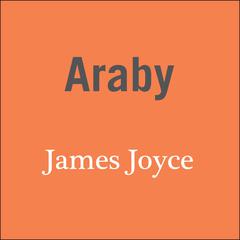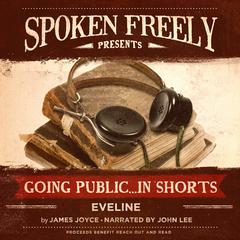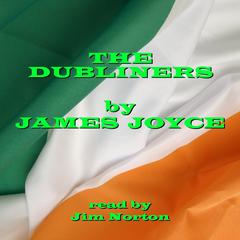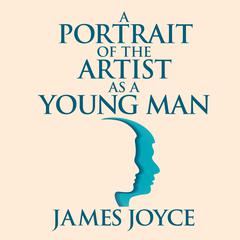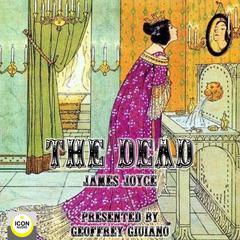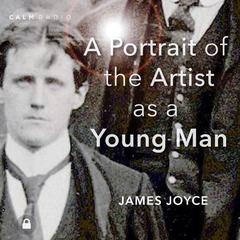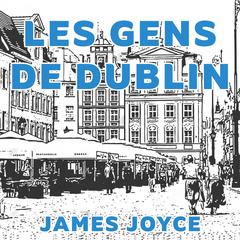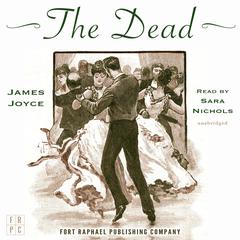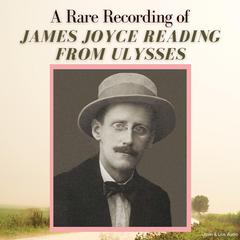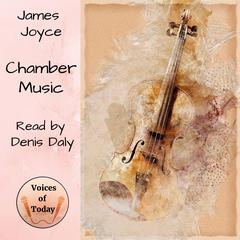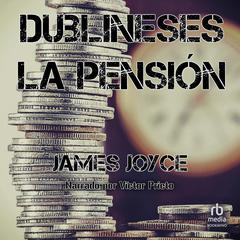 Play Audiobook Sample
Play Audiobook Sample
Dubliners Audiobook
 Play Audiobook Sample
Play Audiobook Sample
Quick Stats About this Audiobook
Total Audiobook Chapters:
Longest Chapter Length:
Shortest Chapter Length:
Average Chapter Length:
Audiobooks by this Author:
Publisher Description
James Joyce paints vivid portraits of the poorer classes of Dublin in a collection of stories whose larger purpose, he said, was to depict a "moral history of Ireland." From the first story, in which a young boy encounters death to the haunting final story involving the middle-aged Gabriel, the book gives an unflinchingly realistic portrayal of the author's own "dear, dirty Dublin" in the early twentieth century.
Joyce's first published work in prose, this brilliant study is by turns bawdy, witty, and tragic. Said Joyce of the work: "I am trying...to give people some kind of intellectual pleasure or spiritual enjoyment by converting the bread of everyday life into something that has a permanent artistic life of its own…Do you see that man who has just skipped out of the way of the tram? Consider, if he had been run over, how significant every act of his would at once become."
Download and start listening now!
"Dubliners is not a collection of happily-ever-after tales. None of the wide arrays of characters achieved their ideal fantasies or remotely reach success. Instead, the citizens are oppressed most of the time and they struggle through their lives routinely. At first, I thought Joyce's writing to be fairly simple and clean; third-person reports of people's everyday lives. Many stories deal with broad themes and universal motifs (paralysis, Dublin, repetition) which link them all together. As I read on, I noticed each preceding story corresponded to highlight the heightening complexity in the next chapter. There was this underlying dark tone to each chapter that just seemed to mock the characters about their elusive happiness. They kept getting bashed from beginning to end and no matter how they tried, they couldn't reach a greater life of meaning. Dubliners practically had every morose depressing element that I dislike to read; then why the hell do I like this book? I thought this book perverse when I read the chapter titled: An Encounter. I thought it mind-thwarting when the boy practically did nothing in 'Araby'. It was shocking and I felt outrageous after completing 'Counterparts'. Chapter 12 and 13 gave me a sense of pointlessness. And disturbingly, 'Clay' had me invested in Maria's next stage of life. Even to me, it makes no sense what I'm talking about and all I know is that James Joyce has serious talent. Maybe that's part of the reason he also has his own holiday named Bloomsday in Ireland."
— Anne (4 out of 5 stars)
Quotes
-
“It is in the prose of Dubliners that we first hear the authentic rhythms of Joyce the poet…Dubliners is, in a very real sense, the foundation of Joyce’s art. In shaping its stories, he developed that mastery of naturalistic detail and symbolic design which is the hallmark of his mature fiction.”
— Robert Scholes and A. Walton Litz, authors of Dubliners: Text and Criticism -
“Joyce renews our apprehension of reality, strengthens our sympathy with our fellow creatures, and leaves us in awe before the mystery of created things.”
— Atlantic Monthly -
“In Dubliners, Joyce’s first attempt to register in language and fictive form the protean complexities of the ‘reality of experience,’ he learns the paradoxical lesson that only through the most rigorous economy, only by concentrating on the minutest of particulars, can he have any hope of engaging with the immensity of the world.”
— John Kelly -
“Frederick Davidson’s…feeling for Joyce’s prose and Joyce’s people is truly remarkable.”
— Library Journal -
“Davidson gives full-voiced narration to the vigorous characters of Joyce’s Dublin and convincing interpretation to what Joyce called ‘the moral history of his community.’”
— Kliatt
Dubliners Listener Reviews
-
" It was good but hardly deserves the rating on the Modern Library's top 100 list. "
— Zack, 2/6/2014 -
" One of my favorites, the short story Araby gives me chills every time, and many others bring me to tears. Read it! Love it! Spread its magic! "
— Rebecca, 1/29/2014 -
" this book is an effective argument in favor of higher education. "
— Rand, 1/28/2014 -
" Great picture of Dublin's people at the turn of the century. "
— Howard, 1/26/2014 -
" The closing paragraphs of The Dead are amongst the most breathtaking I have read by any writer. "
— Richard, 1/23/2014 -
" Best collection of short stories for the time period. And, honestly, the last thing I ever really liked by Joyce. "
— Keith, 1/17/2014 -
" This was one of the books in high school English class that made me go home and write stories on our electric typewriter. It was the first time a series of short stories pierced my heart and imagination. "
— Donna, 1/2/2014 -
" My favorite story is "Araby" which I really relate to. "
— John, 12/23/2013 -
" Amazing literature! Covers aspects of Dublin from the view of a variety of citizens. "
— Lola, 12/17/2013 -
" Five (million) stars for "The Dead," and three stars for most of the other stories in this bleak and beautiful collection. "
— Celeste, 12/4/2013 -
" One of my all time favorite collection of short stories. Joyce is a master storyteller! "
— Ally, 7/10/2013 -
" It's a lot of short stories. The writing style is very awkward, but I guess its praise worthy for some people. I like things to have a certain flow, this was very choppy and dull. If you like a lot of description instead of letting your mind fill the gap, then you'll love this book. "
— Daniel, 4/4/2013 -
" A bunch of great short stories. "
— Ariadne, 1/1/2013 -
" I could not finish this book. "
— Artie, 9/26/2012 -
" Re-reading this book for a class. Using Joyce Annotated as a supplement... The amount of depth in this text is astounding. Every word has a purpose. I am impressed. "
— Jacob, 7/6/2012 -
" James Joyce is excellent. I enjoy anything by him. "
— Heather, 9/11/2011 -
" This book contains fifteen stories. The Dubliners outline Joyce's native city in Ireland, Dublin. The stories all have a common theme consisting mainly of betrayal and religion. Dubliners illustrates and deals with the struggles of complexed relationships and life as it was in Dublin, Ireland. "
— Karolyn, 9/7/2011 -
" One of my best liked books. A classic. "
— Louis, 7/24/2011 -
" Enjoyable and gripping. Nietzsche-theme throughout. Psychological baring of souls. "
— Jay, 7/10/2011 -
" It lived up to its reputation for being hard to read. It was extremely difficult to read and sometimes painful, but it was worth it. Joyce's novel is hundreds of levels above any other novel I've ever read. What he was able to do in this book was absolutely amazing. "
— Hannah, 5/23/2011 -
" Un libro ideal para personas que sufren de insomnio crónico... "
— Rubio, 5/23/2011 -
" Love Joyce's work, but Ulyssess...aargh! "
— Rick, 5/21/2011 -
" this book requires a very open approach. it's not an easy book to read, but it's an original and kind a revolutionary way to tell the story. even thou it's the favourite, it is an important read that everyone should have a go at.<br/> "
— Rene, 5/6/2011 -
" I'm on chapter 9 (Scylla and Charybdis) and I have to say this is by far one of the best works I have ever read.<br/> "
— Geoffrey, 5/5/2011 -
" One of my all time favourites "
— Frank, 4/26/2011 -
" Some of it's very clever but... "
— Darlene, 4/13/2011
About James Joyce
James Joyce (1882–1941) was an Irish expatriate writer, widely considered to be one of the most influential writers of the twentieth century. He is best known for his landmark novel Ulysses and its highly controversial successor Finnegans Wake, as well as the short-story collection Dubliners and the semi-autobiographical novel A Portrait of the Artist as a Young Man.
About Frederick Davidson
Frederick Davidson (1932–2005), also known as David Case, was one of the most prolific readers in the audiobook industry, recording more than eight hundred audiobooks in his lifetime, including over two hundred for Blackstone Audio. Born in London, he trained at the Royal Academy of Dramatic Art and performed for many years in radio plays for the British Broadcasting Company before coming to America in 1976. He received AudioFile’s Golden Voice Award and numerous Earphones Awards and was nominated for a Grammy for his readings.







